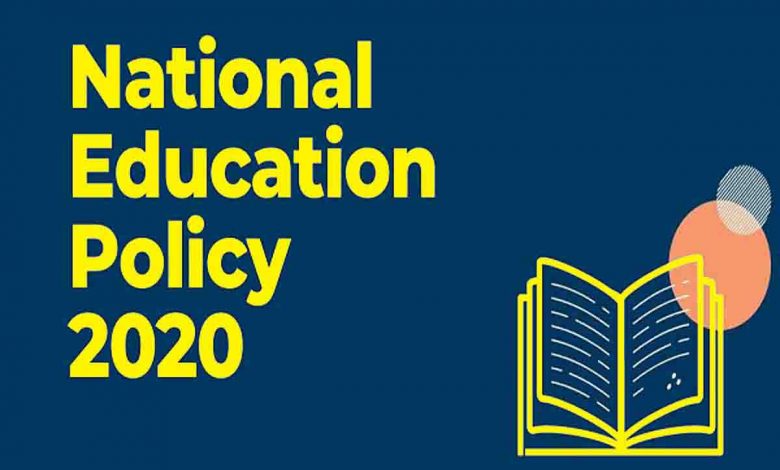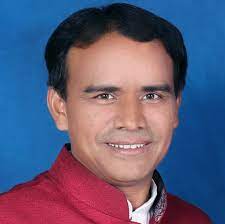National Education Policy (NEP)-2020: In sync with changing times

GUEST COLUMN
 By Dhan Singh Rawat
By Dhan Singh Rawat
The national education policy 2020 (NEP-2020) broadly covers the basic idea and vision articulated by the Government of India under the visionary leadership of Prime Minister Narendra Modi during the budget session of 2020-2021, where the finance minister has mentioned the focus of the Government on aspirational India, economic development for all and development of a caring society. To convert this vision into action the government in the recent past has undertaken numerous reform initiatives. NEP-2020 is one of such reforms to transform the country.
In short NEP-2020 can be summarized in broadly two ways, first, to provide the flexibility for students proposing multiple exit options from undergraduate programs with appropriate certification and second, there is a call for integration between academia and industry in it.
The National Education Policy (NEP) emphasizes early childhood care and education, foundational numeracy and literacy by class-III. Conceptual understanding, multilingualism and flexibility in course choice are to be provided from secondary school level.
As per the new policy, the curriculum needs to be reduced to core areas and the focus should be on developing competency, pedagogical approaches like integrated and experiential learning. To promote critical and creative thinking, scientific temper, digital literacy, problem solving, design thinking, holistic health, artificial intelligence, organic living, environmental education and the value education are the areas to look at and bring students closer to their culture and heritage.
This policy paves way to achieve this dream by its implementation and Uttarakhand became the first state to implement NEP-2020 when it started Baal Vatikas in 4457 Aanganwadi centers in the first phase. These Vatikas would be set up in all the Anganwadi centers in the state from the current academic session.
The salient features of the NEP-2020
1. The policy makes early childhood care and education for children in the 3-6 year age group as an integral part of school education.
2. It gives priority on imparting foundational literacy and numeracy by the time a child enters III grade. Currently children arrive in this or higher classes without these skills due to poor curriculum.
3. This policy ends the separation of school curriculum into science, arts and commerce, instead it allows students to take courses across these fields.
4. Vocational education is part of the regular school curriculum under the NEP-2020. It will improve the skill of the workforce in future and help the industries to grow in a globally competitive era.
5. ‘Right but tight’ regulation by a single body for promotion of higher education will help to ensure academic discipline.
6. A Higher Education Commission of India (HECI) will be set up under the NEP-2020. This body will function with four independent bodies at national level and simultaneously in the states there will be state commission with state level bodies such as;
a) Standard setting – the general education and Professional Standard Setting Bodies (PSSBs) will be formed.
b) Funding- for funding of the higher education institutions Higher Education Grants Council (HEGC) will be created.
c) Accreditation- for accreditation and assessment National Accreditation Council (NAC) will come into existence.
d) Regulation- For the regulation of these institutions a Higher Education Regulatory Council (NHERC) will be created.
7. Professional education will be an integral part of the higher education
8. Stand-alone technical universities, health science universities, legal and agricultural universities will become multi-disciplinary institutions.
9. Public and private higher education institutions will be governed by the same set of norms for regulation and accreditation and academic standards, public and private schools will be assessed and accredited on the same criteria, benchmarks and processes, this will ensure the equity in the society.
10. Sanskrit and all Indian languages are to be promoted and separate institutions and departments are to be established to promote Pali, Persian and Prakrit languages, this will help to understand the traditional knowledge of Indian culture and civilization, classical, tribal endangered languages etc. will help to preserve and promote traditional knowledge of our culture. These initiatives full of Inclusivity of the policy will help to stop commercialization of higher education in the long run.
11. Higher education institutions will be transformed into multidisciplinary universities, colleges and clusters or knowledge hubs.
12. Open and distance learning are expanded through online courses, digital repositories and credit-based recognition of MOOCs. It will be helpful in enhancing the teaching and learning process.
13. Integrity of faculty and institutions leadership will be affirmed.
14. All the institutions will have academic and administrative autonomy.
15. Internationalisation of education will allow the entry of foreign universities to promote mobility of faculty and students.
The implementation of NEP-2020 is one of the steps to achieve the target of new India and the Institution of eminence scheme is an opportunity to our Institutions to think out of the box and to take on the very best in the world.
In the nutshell, NEP-2020 will promote the governance mantra of “Minimum Government Maximum Governance”; the policy will help to achieve the target of Sabka Vikas and Sabka Vishwas and involves Sabka Saath, and Sabka Prayas in its implementation.
The writer is Cabinet Minister in Government of Uttarakhand






